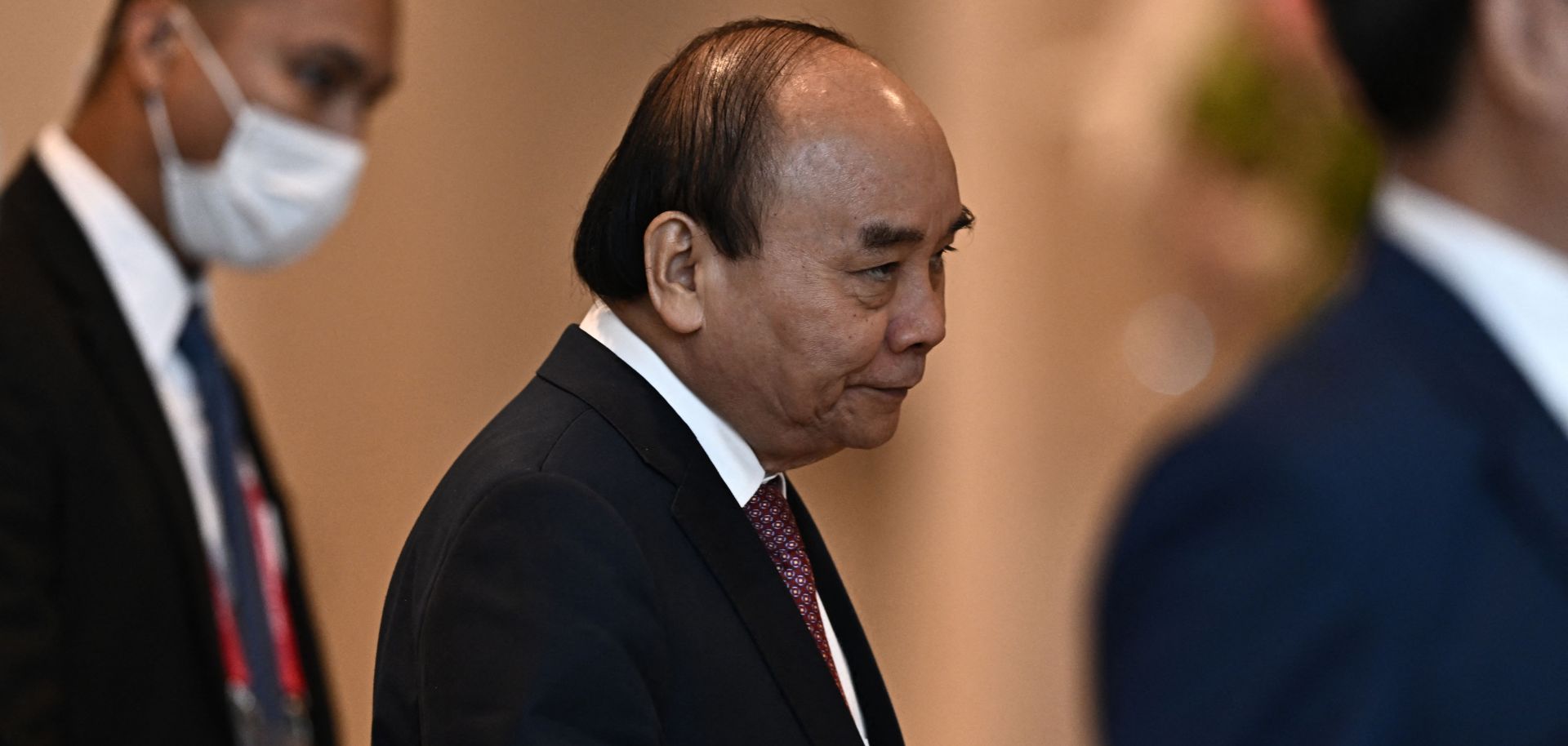The forced resignation of Vietnam's president marks the highest-ranking official targeted by the ruling Communist Party's sweeping anti-corruption campaign and portends the strengthening of national security elites, but the country's long-term outlook remains relatively unchanged. Vietnamese President Nguyen Xuan Phuc resigned on Jan. 17 after the Communist Party's Central Committee found him responsible for ''violations and wrongdoing'' related to the corruption of officials under his purview when Phuc was prime minister from 2016-2021. Phuc is the first Vietnamese president to be effectively ousted from office. He is also the highest-ranking government official to be implicated in General Secretary Nguyen Phu Trong's growing ''blazing furnace'' anti-graft campaign, which saw the removal of two deputy prime ministers earlier this month. Phuc resigned from leadership positions in the politburo, Central Party Committee, and National Defence and Security Council as well. Vietnam's National Assembly is expected to elect a new president in May; Vice...

